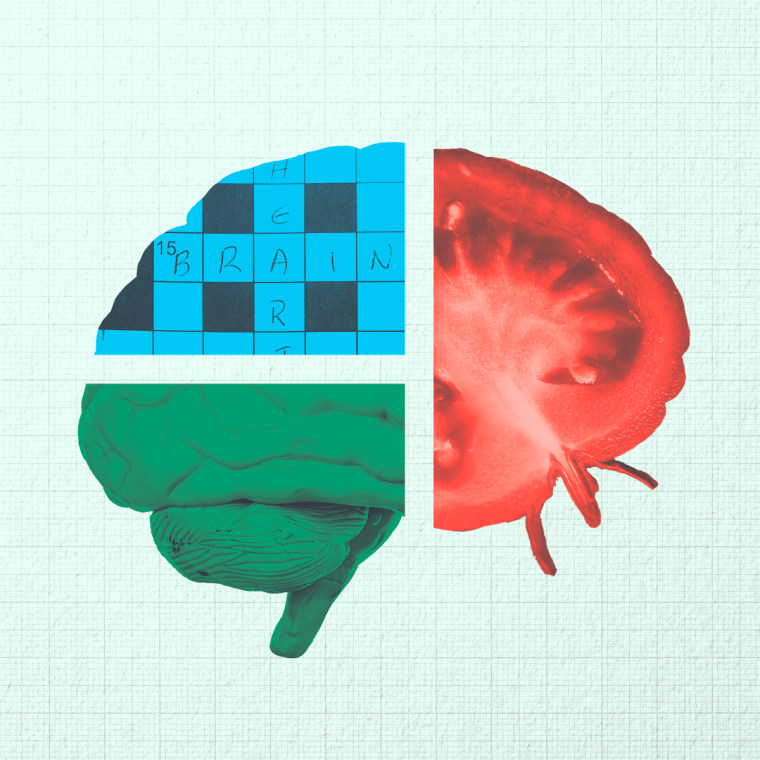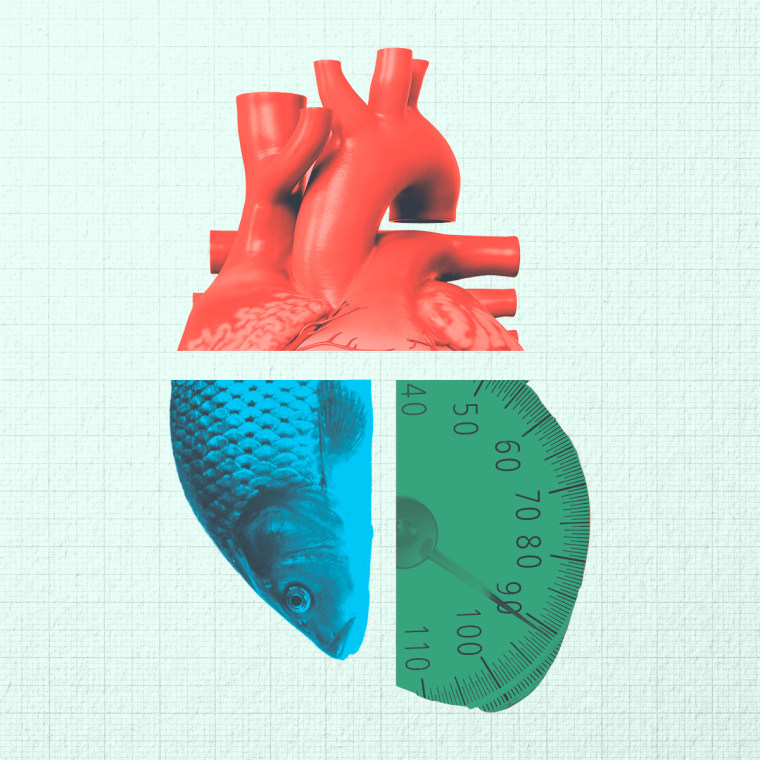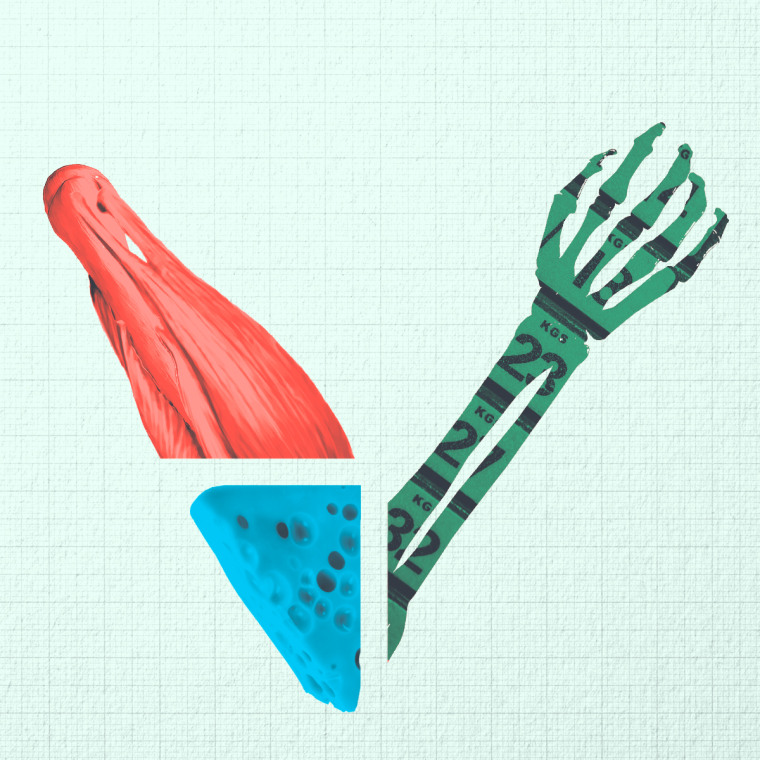The biohacking, supplements and big wellness industries would have you believe that you can trick your body into staying healthy for decades. But much of these claims are based on dubious science, if any, experts say.
What the research really shows is lifestyle is the most powerful tool in our healthy aging kit — think basic habits like exercise, diet, getting quality sleep and reducing stress, no cleanses needed.
But is it more powerful than your genes?
Dr. Sofiya Milman, director of Human Longevity Studies at Einstein’s Institute for Aging Research, studies “super agers,” who experience few age-related illnesses even past 100 and have lifespans that far exceed the average.
While she investigates their behaviors, she also examines their genes in hope of finding ones that contribute to their good health. Understanding more about the genes associated with aging could lead to future treatments for some conditions.
“There have been a number of genes … that have been linked to longevity,” Milman explains. “We still have a lot more work to do.”
Her research, so far, suggests that both genes and lifestyle play a role in healthy aging, from being independent later in life to avoiding age-related diseases, like cancer, dementia and arthritis.
“As we get into the extreme lifespan — so people living to age 95, 100 and beyond — genetics play a much more important role than lifestyle,” Milman says. “It’s unlikely that lifestyle alone will get us to live to extremes of life and remain healthy.”
With super agers, genes make up about 80% of the reason why they have such long lives, Milman estimates.
But for people hoping to enjoy life until their 80s or even early 90s, they have more control. “That’s where lifestyle plays an important role,” she says. “Genetics may be less important, maybe contributing 25%.”
Milman isn’t surprised by the recent increased interest in aging and centenarians. “It’s natural for us to be curious about it,” she says. “The question that we all ask ourselves is, ‘What can we do to stay healthy as we age?’”

Brain Function
Many fear that as they age, they will develop dementia. Data certainly shows that more people are being diagnosed with the cognitive condition; a recent study indicates that for those 55 and older, the risk of developing dementia is 42%, higher than past research has shown.
Yet, dementia doesn’t have to be inevitable.
“About 40% of all dementias could be attributed to modifiable risks,” Dr. Jonathan Rosand, co-founder of the McCance Center for Brain Health at Massachusetts General Hospital, tells TODAY.com. “So, flip that — that means we have an opportunity to through lifestyle modification to prevent nearly half of all dementias, which is a remarkable opportunity.”Other worrisome brain conditions, such as stroke and depression, are also connected to behaviors people can change. Modifiable risk factors contribute to 70% of stroke and 35% of depression, per Rosand.
“It’s an enormous opportunity to really change the course of human aging, to really alleviate suffering,” he adds.
Rosand started working on what’s now called the Brain Care Score, “an instruction” on bolstering brain health. It includes 12 areas “well supported by science” that help reduce risk of dementia, stroke and depression, Rosand explains. The 12 areas include:
- Blood pressure
- A1C (blood sugar measurement)
- Cholesterol
- Body mass index
- Eating habits
- Alcohol use
- Smoking
- Exercise
- Sleep
- Stress
- Relationships
- Meaning in life
While a higher score means lower risk of brain issues, Rosand cautions that a low score is simply an opportunity for improvement. For example, someone who loathes exercise might decide to cut out alcohol first — which could then motivate them to working out.
“Success begets success,” he says. “It’s an empowerment tool, and that’s one of the reasons we insist on backing it up with the very best science. We are not including things that aren’t proven yet. This is not about selling anything.”
Perfection is not the goal. “You have to be able to give yourself a break,” he explains. “If you have a couple of drinks, but generally you’re not drinking at all, that’s OK.”
Starting these behaviors at any age can lead to benefits, and even people predisposed to dementia can still improve their brain health.
“If you raise your Brain Care Score, you lower your risk,” he says. “You might not get it down as low as somebody who doesn’t have those genes, but you can substantially reduce those risks.”

Heart Health
Similar to brain health, family history can play a role in developing heart conditions, but certain behaviors can counteract bad genetics, Dr. Leslie Cho says.
“Heart disease is preventable, 90% (of it), even if we’re born to a terrible family history,” the cardiologist and director of Cleveland Clinic’s Women’s Cardiovascular Center, tells TODAY.com. “The best way to do it is with … with diet and exercise.”
“If I can have one wish, it would be that people never pick up smoking, that they eat a healthy, mostly plant-based diet, and then (exercise),” Cho says.
Another wish? More people getting routine primary care to help discover issues like elevated blood pressure and cholesterol, which can often be addressed with lifestyle changes, she adds.
And for people who live healthy lives but still have high blood pressure or cholesterol, there are medications available.
“We’re lucky to live in an era where we have these,” Cho says. “This is not a moral failure. … The moral failure is not taking advantage of all these things that can help you life long with less dementia, no stroke, less heart attack.”
One’s risk for cardiovascular disease is developed over a lifetime, not just kicking in at menopause or at age 40. “It starts from the day we are born, how we take care of ourselves, the things that we put into our body,” Cho says. “Those all have cumulative effect.”
But building heart-healthy habits at any time can have benefits. “It’s never too late,” she adds.
Skin Aging
You can skip the complicated skin care regimen and anti-aging procedures if you’re not doing one thing: wearing sunscreen.
“UV rays from the sun ages us,” causing brown spots, skin cancer and wrinkles, Dr. Shari Lipner, associate professor of clinical dermatology at the Weill Cornell Medical Center, tells TODAY.com. “Using sunscreen can protect us from these changes.”
SPF 30 provides about 99% protection from the sun’s rays, and broad spectrum blocks UVA and UVB rays. Wear it year-round, even on cloudy days, Lipner adds.
When it comes to daily skin care, sometimes less is more.
“It may sell to give these complicated (skin care) routines, but really the scientific evidence supports keeping things simple,” Lipner says. This includes washing the face twice a day with a gentle cleanser and applying a moisturizer with sunscreen.
For anti-aging, the science really only supports two topical products, retinoids and vitamin C.
Botox and fillers can also create a more youthful look by preventing muscle contraction that leads to wrinkles, plumping the skin, and boosting collagen production to maintain elasticity.
Boosting Immunity
Getting zinc and vitamin C in your diet is good, but immunologists know there’s one surefire way to bolster immune health.
“The only way you can really truly boost or hack your immune system is through getting vaccines,” Aimee Pugh Bernard, Ph.D., assistant professor of immunology and microbiology at the University of Colorado Anschutz Medical Campus, tells TODAY.com.
Vaccines “train your immune system” to recognize pathogens, such as viruses, so when one enters the body, the immune cells have a memory of it and suppress it, she explains.
While vaccines prevent infection or lessen symptoms in the short-term, research indicates that they can ofter other lifelong benefits.
For example, the shingles vaccine also protects against dementia and heart disease. And the measles vaccine can prevent “immune amnesia,” when the measles virus wipes out the immune system’s memory of other pathogens, increasing risk of severe illness. It occurs to some degree in most measles cases, research shows.
The same behaviors that benefit other organ systems can also help maintain a healthy immune system.
Gastrointestinal Health
For the past 15 years, gastrointestinal cancers have been rising at an alarming rate in young people, and researchers have yet to determine why, though evidence suggests lifestyle may play a prominent role.
Unsurprisingly, diet is most important for long-term gastrointestinal health. A healthy one can reduce risk of acid reflux, irritable bowel syndrome and even colon cancer, experts say.
The Mediterranean diet in particular can help maintain a healthy gut microbiome and treat a range of diseases, gastrointestinal and beyond, Dr. William Chey, chief of the division of gastroenterology and hepatology at the University of Michigan Health, tells TODAY.com.
It focuses on healthy fats, lean protein, fruits, vegetables and whole grains, which lends to eating more fiber, something most Americans fall short in but is important for overall health, research shows.
Some research also shows the Mediterranean diet “might have anti-inflammatory properties.” And the minimal amount of red meat in the eating pattern could reduce risk of colorectal cancer.
“It’s very nicely shown that cultures where there’s more red meat consumption tend to have higher rates of colorectal cancer than cultures where there’s less red meat consumption,” Chey says.
Alcohol and smoking are also linked to gastrointestinal cancers, so Chey recommends a “common sense” approach to drinking.
“It’s really for people that are consuming larger quantities, like three to four alcoholic beverages per day, that you see a significant jump in risk,” he says. “Like many other things in life, moderation is the key.”
Regular exercise can improve gut health, too, reducing constipation and IBS symptoms.

Muscle and Bone Strength
Exercise is one of the most powerful longevity tools for all parts of the body, but especially for helping people live independently into their 80s and 90s. It also reduces the risk of chronic conditions.
Plus, people who exercise regularly tend not to smoke, eat healthier and blend other healthy behaviors into their lives, Dr. Kenneth Koncilja, an internal medicine and geriatrician at Cleveland Clinic, tells TODAY.com.
Aim for 150 minutes of moderate or high-intensity exercise a week. “A healthy goal” is cardio that elevates the heart rate three or four times a week rate, and some resistance, aka strength, training.
Cardio can be running, biking, dancing, HIIT or walking. Resistance training includes weight lifting and body-weight activities, such as yoga, Pilates or tai-chi. Some workouts combine both, such as adding resistance while spinning or hiking up a hill. HIIT classes often use resistance and cardio, too.
But for someone who is sedentary, even a modest increase in activity has benefits. Koncilja encourages starting small, trying to do more each day than the one before. If you’re walking 2,000 steps a day, try adding just 1,000 more to start.
The goal in exercising is maintaining functional strength as long as possible, which allows people to engage in their normal behaviors, such as grocery shopping, driving, cooking and cleaning,
“Strength training is a huge factor that can help reduce dependency later in life,” Koncilja says.
Source link
